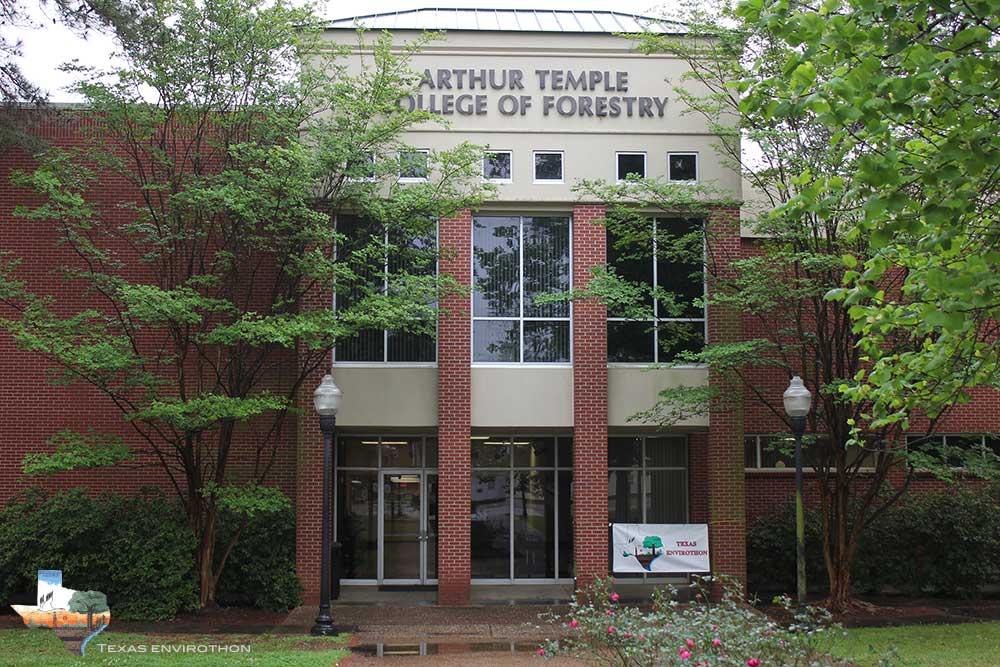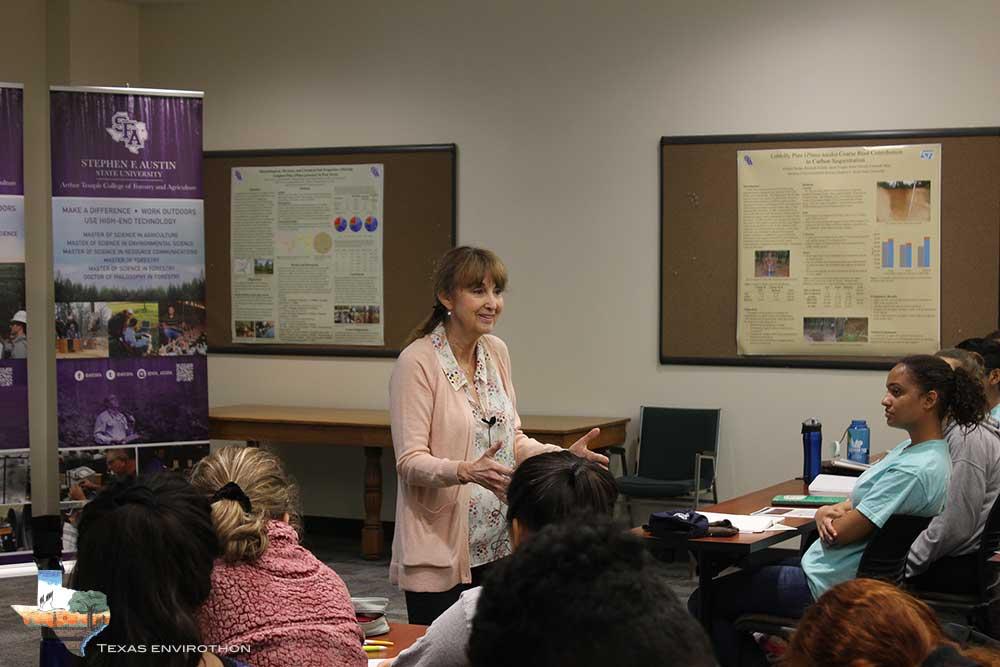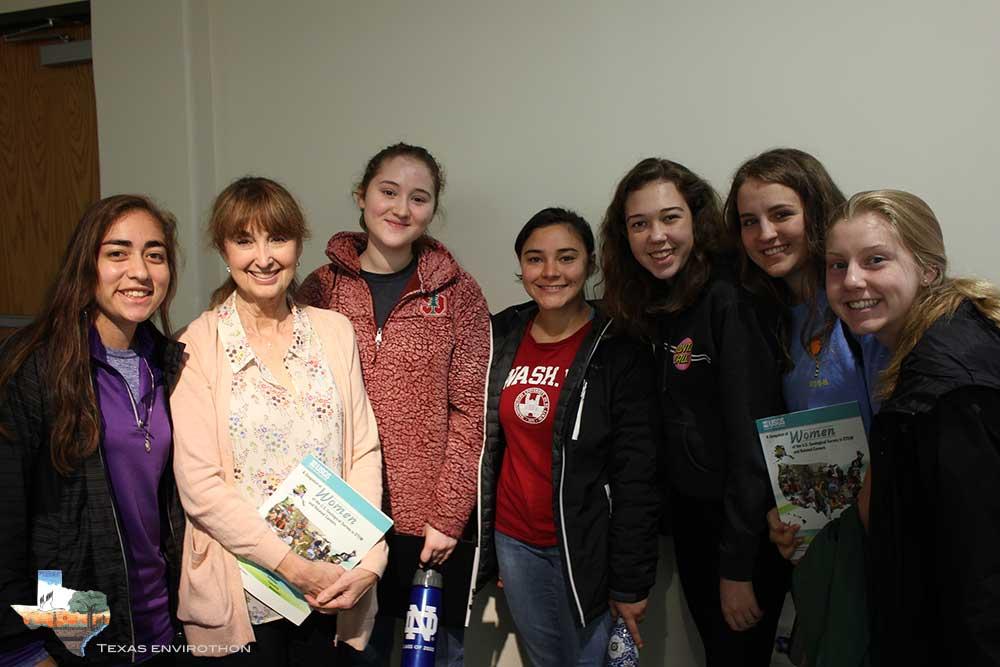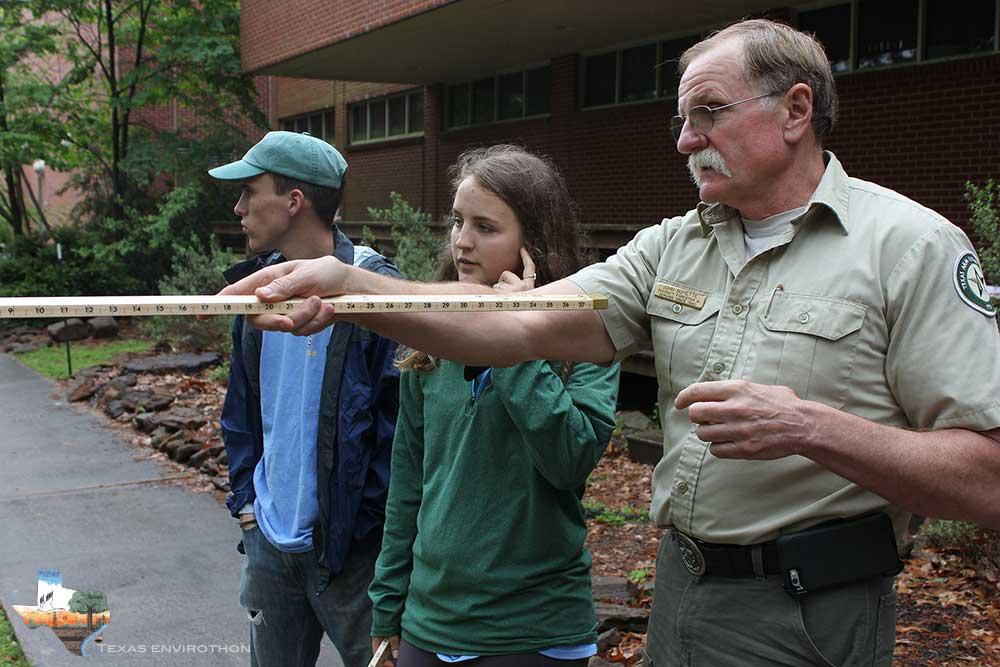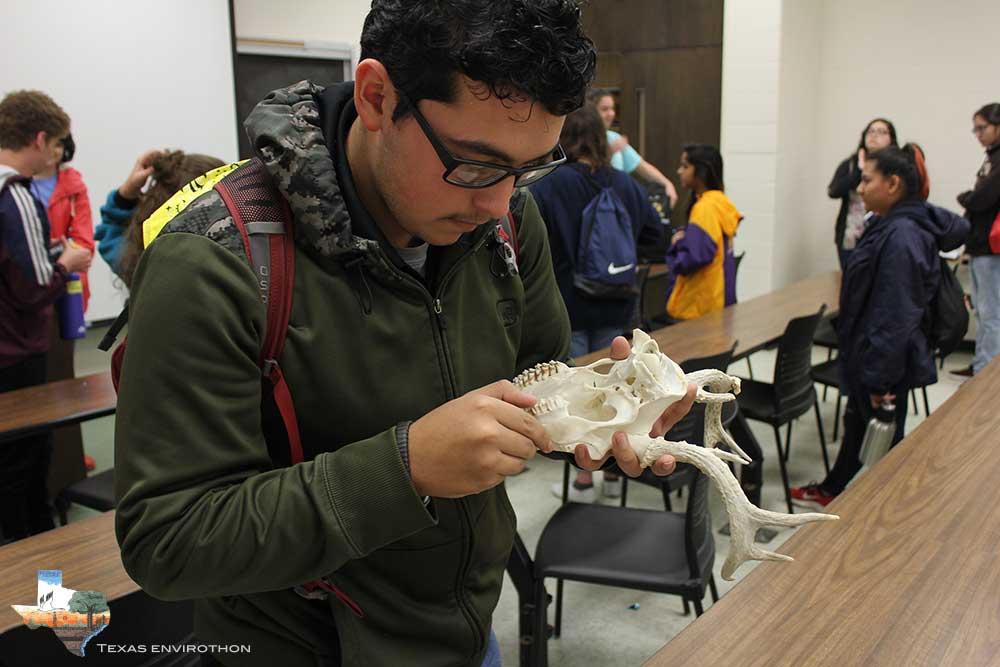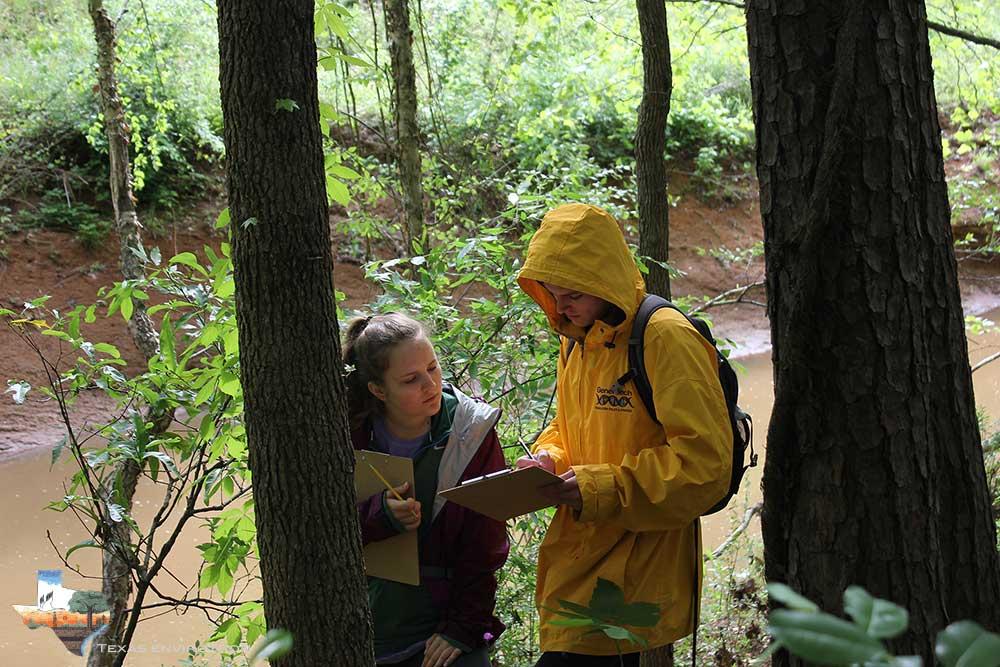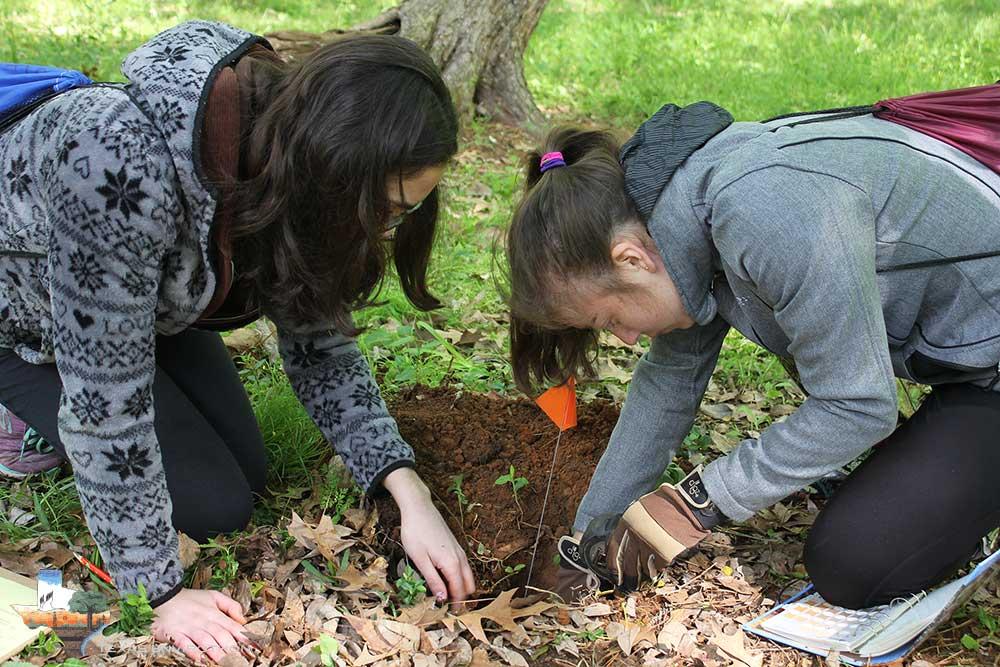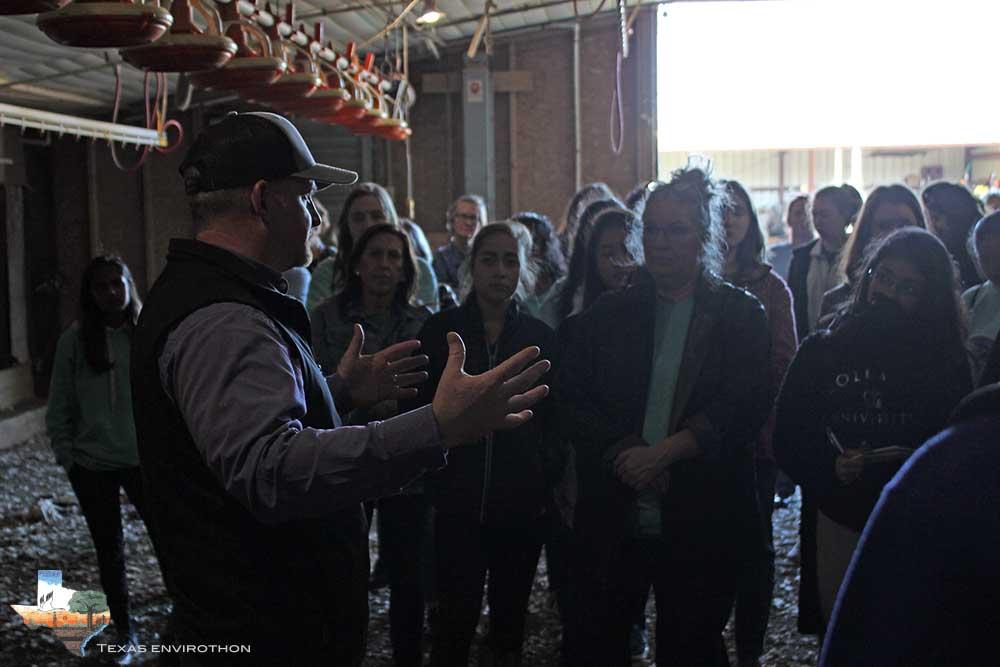
2019 Texas Envirothon
Nacogdoches
April 13–15, 2019
- 1st Place: Richardson High School, Question Mark Butterfly
- 2nd Place: Science Academy of South Texas, Team Green
- 3rd Place: Science Academy of South Texas, Team Maroon
| Area of Study | Top Score | School, Team |
|---|---|---|
| Aquatics | 84/100 | Richardson High School, Question Mark Butterfly |
| Forestry | 88/100 | Richardson High School, Firewheel |
| Soils | 86/100 | Richardson High School, Question Mark Butterfly |
| Wildlife | 76/100 | Richardson High School, Question Mark Butterfly |
| Current Issue | 88/100 | Richardson High School, Question Mark Butterfly |
| Oral Presentation | 183/200 | Science Academy of South Texas, Team Maroon |
- Gold Sponsor: Eastman Chemical Co.
- Silver Sponsor: LyondellBasell
- Bronze Sponsors
- Gulf Coast Authority
- Montgomery County Soil & Water Conservation District
- Texas Association of Environmental Professionals
- Texas Forestry Association Educational Fund
- Environmental Institute of Houston / UHCL
- Supporters
- Association of Texas Soil & Water Conservation Districts
- Harris County Soil & Water Conservation District
- Texas Association for Environmental Education
- Hosts
- Stephen F. Austin State University
- SFA Gardens Pineywoods Native Plant Center
- Walter C. Todd Agricultural Research Center
Ten teams representing six Texas high schools participated in the three-day competition.
- Academy of Science and Technology, The Woodlands
- Richardson High School, Richardson
- Rio Hondo High School, Rio Hondo
- Science Academy of South Texas, Mercedes
- Seven Lakes High School, Katy
- The Woodlands College Park High School, The Woodlands
Press Release Final Scores Photo Gallery
Resources
There are many articles that estimate the population of the Earth to be approximately 9 billion by the year 2050. One of the primary concerns for the agricultural industry is how will farmers be able to grow enough food to feed this growing population, while also protecting natural resources such as soil, water, air, wildlife, and forestry resources.
Students will learn the concepts of how agriculture and all natural resource areas are interrelated, and how the use of new technologies are key to increase food production. Key topics will include:
- Understand the importance of moving toward sustainable farming systems to conserve natural resources, mitigate climate change, reduce erosion and protect water quality and quantity, and promote pollination;
- Comprehension of farming practices that build soil organic matter such as composting, crop rotations, cover crops, conservation tillage, and management intensive grazing systems to improve soil health;
- Understand integrated pest management and biological pest control techniques used to prevent insect pest, disease, and weed problems;
- Understand the role of new technology: agricultural biotechnology; precision agriculture; and using UAV (drones, GIS, etc.) to increase farm efficiency for food production.
Key Topics
- Understanding how agroecosystems function and the services they provide.
- Understanding the importance of soil health as the foundation of a healthy ecosystem.
- Understanding sustainable agriculture on large and small farm operations, as well as the indicators of sustainable farming.
- Understanding how sustainable and best management farming practices enhance and protect soil health, water quality and quantity, and biodiversity; as well as manage insect pests, disease, and weeds.
- The differences of local, regional, and national foods systems that are vital to grow food for an ever increasing world population; and the importance of each food system.
- New technologies that help provide more efficient agriculture production.
Learning Objectives
- Understand how agroecology applies ecological principles to agricultural systems by considering productivity, ecosystem impacts, and social responsibility.
- Understand the indicators of soil health, including physical, chemical and biological properties and its role in the agroecosystem.
- Define sustainable agriculture, including comparing and contrasting sustainable practices on large and small farm operations.
- Understand the importance of moving toward sustainable farming systems to conserve natural resources, mitigate climate change, reduce erosion and protect water quality and quantity; as well as and promote pollination.
- Understand farm management practices to build soil organic matter, such as: composting, crop rotations, cover crops, conservation tillage, and management intensive grazing systems to improve soil health.
- Understand best management practices that improve water quality and reduce water use such as conservation tillage, cover crops, plant selection, precision agriculture, water re-use, and sub-surface drip irrigation.
- Understand integrated pest management and biological pest control techniques used to prevent insect pest, disease, and weed problems.
- Knowledge of the role pollinators play in farming and ways to attract them.
- Describe the economic, social, and environmental benefits of sustainable agriculture to local communities, as well as to regional and global food systems.
- Understand the role of new technology: agricultural biotechnology; precision agriculture; using UAV (drones, GIS, etc.) to increase farm efficiency for food production.
- Understand the risks and benefits of agricultural biotechnology.
- How will we survive when the population hits 10 billion? (video)
- 5 transformational policies for a prosperous and sustainable world (video)
- Let the environment guide our development (video)
Sustainable Agriculture
- Applying the principles of sustainable farming
- Strategies to manage nursery runoff
- High tunnels and other season extension techniques (including video links)
- Frequently asked questions about handling flooded produce
- Supporting agricultural ecosystem services through the integration of perennial polycultures into crop rotations
- The crops of Texas
- Poultry production expected to grow
- How sustainable is poultry farming
- Uses and management of poultry litter
Recommended Reading
- Florence and the 5 stages of climate change acceptance
- In the heart of the corn belt, an uphill battle for clean water
NCF-Envirothon Resources
| Topic | Presenter |
|---|---|
| Current Issue: Agriculture and Climate Change | Dr. Kathleen Garland, University of Houston-Clear Lake |
| Nature in Balance | Jo Picken, Texas A&M AgriLife Extension |
| Soils | James Akin, Natural Resources Conservation Service |
| Aquatics Aquatics Notes |
Krystyn Krafka, Harris County Flood Control District |








